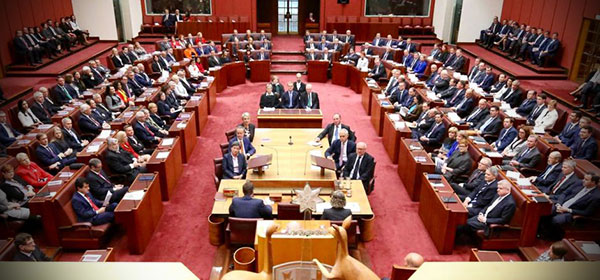Just when you thought you’d heard the end of the dual citizenship saga, the High Court makes a new ruling that brings the parliamentary pot to boil.
Four MPs who were dual citizens when they ran for seats in the 2016 election have resigned from Parliament after Labor Senator Katy Gallagher was found by the High Court to be in breach of the Constitution, relieving her of her seat in the Senate.
The long-awaited ruling clarified an ambiguity in the Canavan ruling about the ‘reasonable steps’ an MP must take before contesting an election. The original ruling left open the possibility that an MP could have made the necessary application to renounce foreign citizenship and still ran for government without receiving notification that the citizenship was renounced due to an ‘irremediable impediment’.
Senator Gallagher applied for a revocation of her UK citizenship prior to running on 31 May 2016 but was told in July that she couldn’t renounce her citizenship because of missing paperwork. Her renunciation didn’t take place until August 2016.
The High Court ruled that this was not an ‘irremediable impediment’ and that Ms Gallagher was in breach of Constitution. Three other ALP MPs, Josh Wilson, Susan Lamb and Justine Keay all then resigned because they were relying on the same defence.
South Australian MP Rebekha Sharkie of the Centre Alliance – formerly the Nick Xenophon Team – also announced her resignation on Wednesday in the aftermath of the High Court decision.
Susan Lamb had also submitted an application prior to running but was told she couldn’t renounce her citizenship because of missing paperwork – a wedding certificate from her parents that she couldn’t file because she is estranged from her mother. It’s unclear as to whether UK authorities still require the marriage certificate to complete the revocation process, meaning Ms Lamb may not be able to recontest her marginal seat of Longman in Queensland.
Labor claims the court’s decision is a law change, and believes it acted in ‘good faith’ during its vaunted vetting process for applicants. Meanwhile, the court says its ruling is merely a clarification of the original Section 44 ruling.
“Until today’s decision the ‘reasonable steps’ test had been accepted for more than 25 years. It continues to be the basis of the Australian Electoral Commission’s advice to candidates (in the current Candidate’s Handbook) and was the guidance I followed when I nominated in 2016,” said Mr Wilson.
“The new interpretation of the law means the question of whether a person took all ‘reasonable steps’ to renounce foreign citizenship simply doesn’t exist for dual Australian-British citizens, irrespective of the administrative delay in the process, which is generally two to four months.”
The dual citizenship saga has claimed 15 politicians, 10 of whom have left politics altogether, and it’s cost Australian taxpayers around $12 million in legal fees.
The New Daily reports that taxpayers will have paid out around $5 million in wages to 17 politicians who were never eligible to sit in Parliament, which includes Rod Culleton and Bob Day – the only two of the 17 who weren’t eligible due to citizenship queries.
Add to this cost the $1.7 million for each of the five impending by-elections (including retiring Tim Hammond’s seat in Perth) and one may wonder why we don’t just throw it all to the wind and make it a Federal Election.
Do you think this ruling is fair? Is it time we have a clean start and head to the polls for a Federal Election?
Related articles:
Turnbull’s dual citizenship debacle
Dual citizens may score two pensions
Barnaby Joyce’s dual citizenship saga

